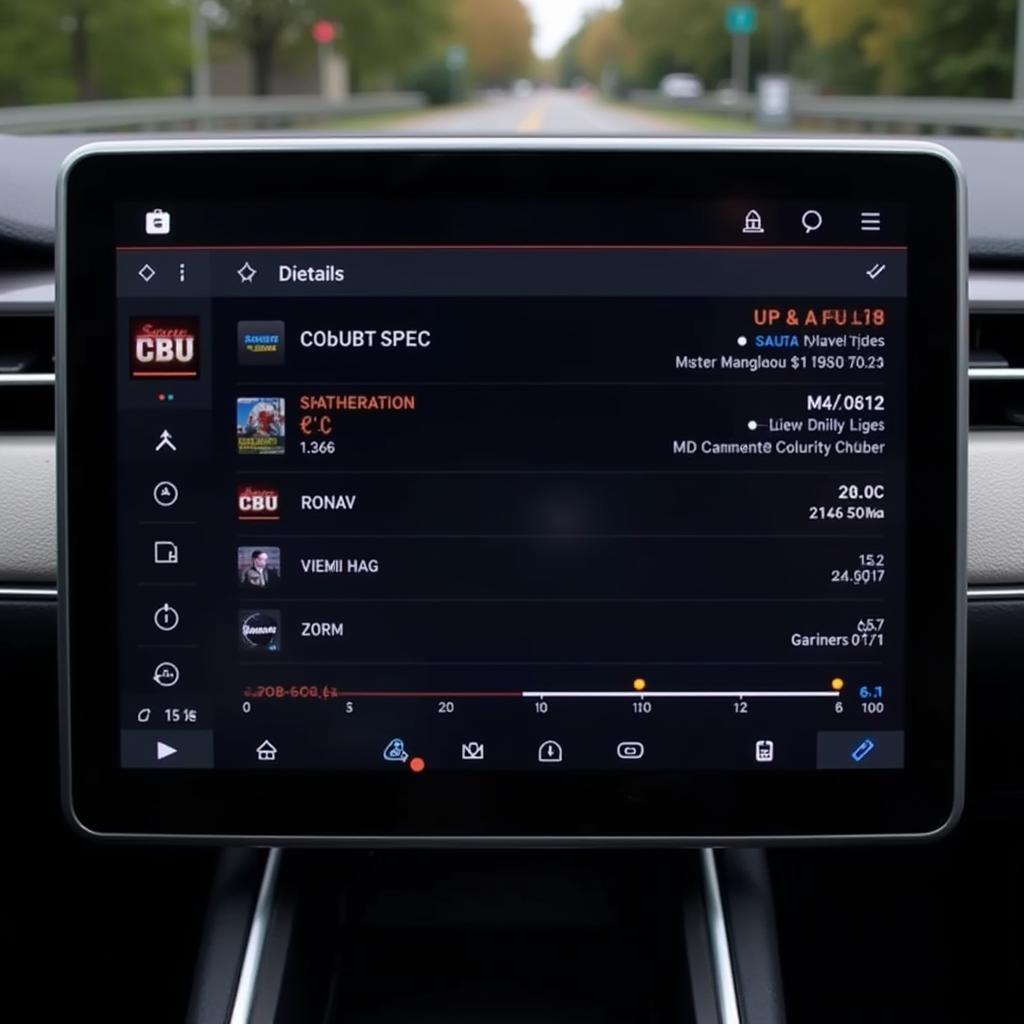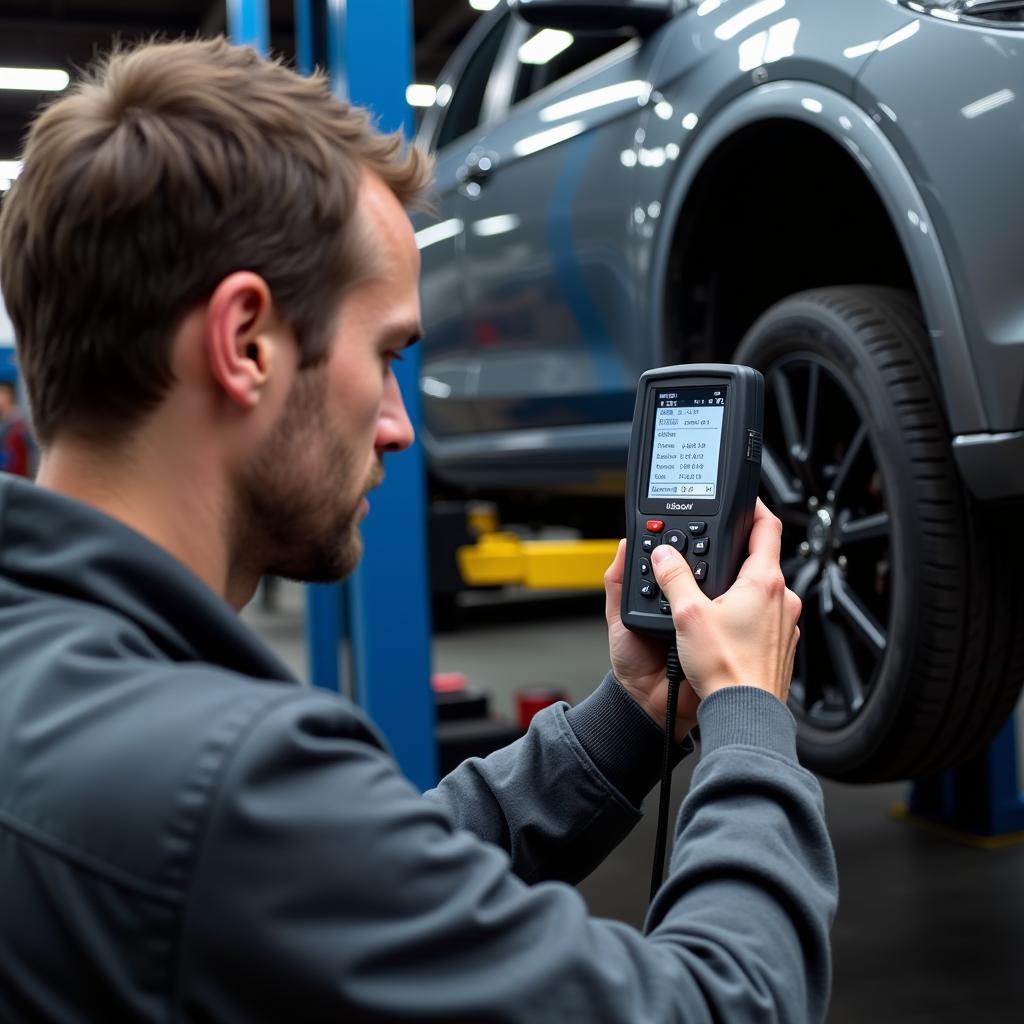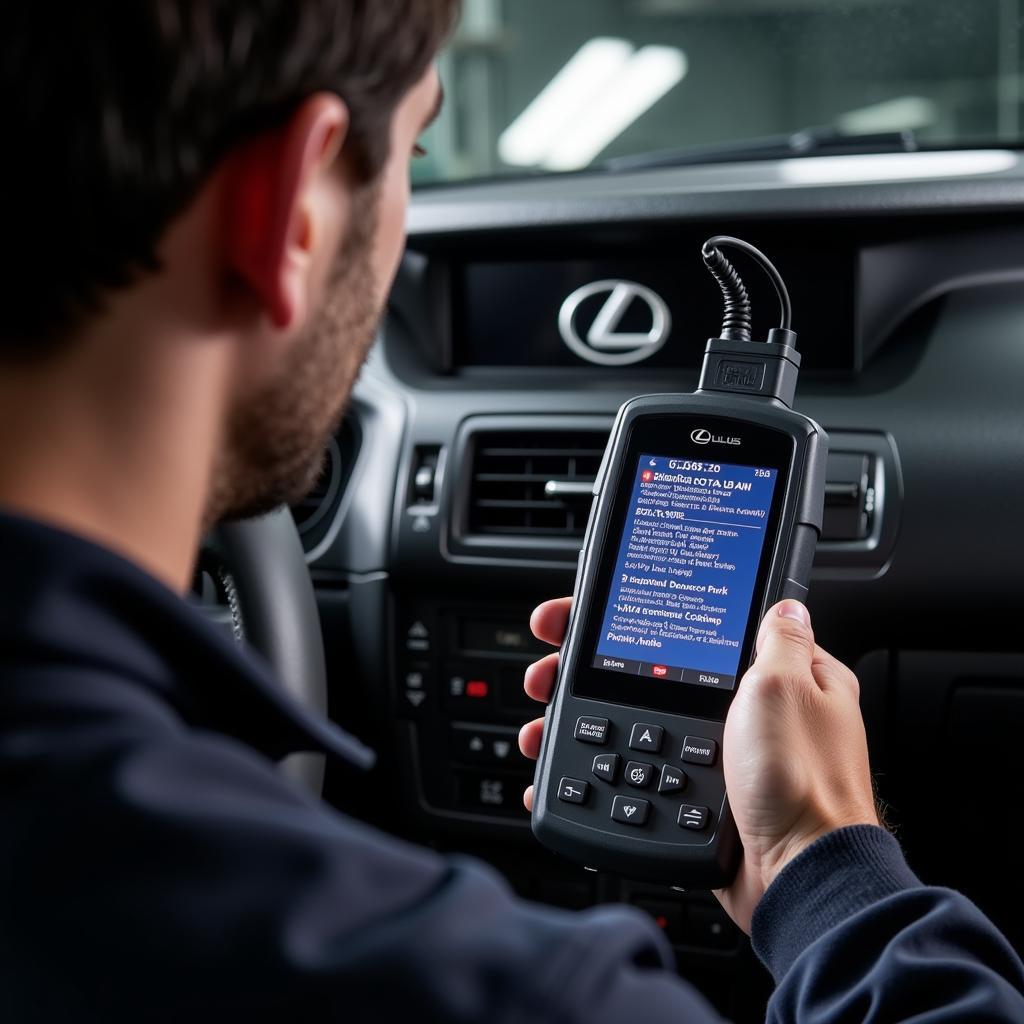The world of automotive repair is rapidly evolving, with software playing an increasingly critical role in diagnosing and resolving vehicle issues. Mechanics and car enthusiasts alike are constantly seeking advanced yet user-friendly tools to delve into the intricate systems of modern vehicles. This brings us to the “Cpu Z Diagnostic Tool,” a term that often sparks curiosity among car owners. However, it’s essential to clarify that “CPU Z” itself is not a dedicated automotive diagnostic tool. Instead, it’s a powerful software primarily designed to provide detailed information about a computer’s hardware components.
While CPU Z won’t directly diagnose a faulty fuel injector or a malfunctioning ABS sensor, it can still be indirectly helpful in an automotive context, especially when dealing with vehicles equipped with sophisticated onboard computers, infotainment systems, and even aftermarket performance tuning modules. Understanding its capabilities and limitations can empower both DIY enthusiasts and professional technicians in their troubleshooting endeavors.
Bridging the Gap: CPU Z and Automotive Diagnostics
Imagine a scenario where a car owner experiences erratic behavior from their infotainment system after a software update. While a traditional OBD-II scanner might not provide insights into the system’s hardware specifications, CPU Z can come in handy. By connecting a laptop to the vehicle’s OBD-II port using a suitable adapter, CPU Z can potentially access and display information about the infotainment system’s processor, memory, and other hardware components. This data can be crucial in identifying compatibility issues, driver conflicts, or even hardware failures that might be causing the problem.
 CPU Z Displaying Infotainment System Specs
CPU Z Displaying Infotainment System Specs
However, it’s essential to remember that directly connecting a computer to a vehicle’s sensitive electronic systems requires caution. Incorrect procedures or incompatible software can potentially disrupt vehicle electronics, leading to further complications. Therefore, this method should only be attempted by individuals with a solid understanding of automotive electronics and computer hardware.
Exploring Alternative Diagnostic Avenues
For comprehensive automotive diagnostics, dedicated OBD-II scanners and professional-grade diagnostic software remain indispensable. These tools are specifically designed to communicate with a vehicle’s various electronic control units (ECUs), retrieve diagnostic trouble codes (DTCs), monitor live sensor data, and even perform advanced functions like actuator tests and ECU coding.
When facing complex automotive issues, it’s always advisable to consult experienced mechanics equipped with the right tools and expertise. They can accurately diagnose the problem, identify the root cause, and recommend the most effective repair strategy, saving you time, effort, and potential costly mistakes.
Expanding the Toolbox: Other Valuable Diagnostic Software
While CPU Z might not be a direct automotive diagnostic tool, numerous other software applications can aid in vehicle troubleshooting and repair:
- Windows 8.1 diagnostic tools: These tools can be helpful when troubleshooting computer-related issues that might affect vehicle diagnostics.
- Mac server diagnostic tools for software: Similar to the above, these tools are beneficial when using a Mac computer for vehicle diagnostics or software-related tasks.
Seeking Expert Assistance for Automotive Diagnostics
Navigating the complexities of modern vehicle electronics can be challenging. If you’re facing persistent car troubles or lack the expertise to perform advanced diagnostics, seeking professional help is crucial.
For top-notch automotive diagnostic solutions, contact ScanToolUS. Our team of experts specializes in providing cutting-edge diagnostic tools and software, catering to both individual car owners and professional repair shops.
Reach out to us at:
Phone: +1 (641) 206-8880
Office: 1615 S Laramie Ave, Cicero, IL 60804, USA
Frequently Asked Questions (FAQs)
Q1: Can CPU Z diagnose car problems?
A1: CPU Z primarily analyzes computer hardware. While it might offer insights into some vehicle computer systems, it’s not a dedicated car diagnostic tool.
Q2: What’s the best way to diagnose car problems?
A2: Using a dedicated OBD-II scanner or consulting a qualified mechanic with the appropriate diagnostic tools is recommended for accurate car problem diagnosis.
Q3: Is it safe to connect a computer to my car’s OBD-II port?
A3: Direct connections require caution. Improper procedures can disrupt vehicle electronics. Consult a professional if unsure.
Q4: What are some other helpful diagnostic software for car owners?
A4: Software like cpu fan diagnostic tool vaio or how to use debug diagnostic tool v1.2 can be helpful for specific diagnostic needs.
Q5: What should I do if I can’t diagnose my car problem?
A5: If you’re unable to diagnose the issue, it’s best to seek assistance from a qualified mechanic or an automotive electrician.
Conclusion
While “CPU Z diagnostic tool” might not be a conventional term in the automotive world, understanding its capabilities and limitations can be beneficial for tech-savvy car owners and professionals dealing with the increasingly sophisticated electronics in modern vehicles. However, it’s crucial to prioritize safety and rely on dedicated diagnostic tools and expert assistance when facing complex automotive issues. By leveraging the right knowledge and resources, you can ensure your vehicle stays in optimal condition.



Pingback: Troubleshooting Your PC? Try the Windows Hardware Diagnostic Tool - Car Scan Tool
Pingback: Mastering Debug Diagnostics Tool v1.2: A Comprehensive Guide - Car Scan Tool
Pingback: Mastering the Windows 8.1 Memory Diagnostics Tool - Car Scan Tool